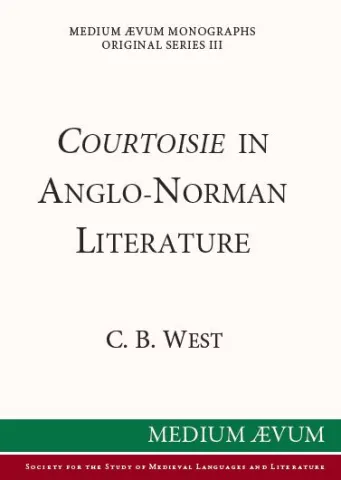Courtoisie in Anglo-Norman Literature by C.B. West provides a comprehensive exploration of the concept of "courtoisie" (courtesy) as it appears in Anglo-Norman literary works following the Norman Conquest. Drawing from key texts, such as Roman de Tristan and Roman de la Charrette, the book examines the ideals of courtly love (amour courtois), where noble virtues, emotional refinement, and romantic devotion were celebrated. West traces the roots of these ideals from the troubadour traditions of southern France and explores their influence on Anglo-Norman literature, highlighting how the love-centered ideals of courtoisie contrasted with the heroic, duty-driven ethos of the chansons de geste.
The study offers a detailed analysis of courtly relationships, the role of women in medieval literature, and the tensions between feudal obligations and personal desire. It also addresses the limitations of courtoisie, critiquing its exclusivity and the emphasis on appearance over emotional authenticity. This book is essential for scholars of medieval literature, particularly those interested in how French courtly ideals were adapted in England. West’s work illuminates the cultural and literary legacy of courtoisie in shaping the narratives of love, honor, and social conduct in Anglo-Norman literature.
